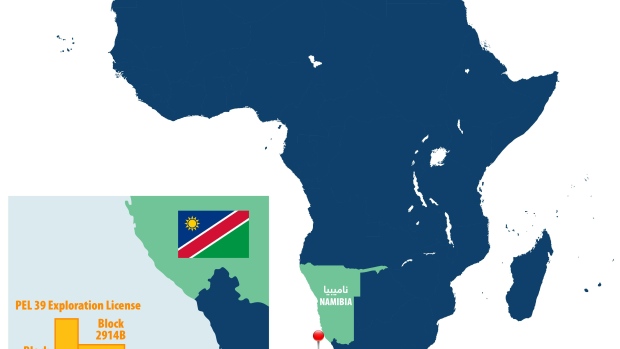May 28, 2021
German Redress for Namibia Genocide Spurs Colonial-Era Reckoning
, Bloomberg News

(Bloomberg) -- Germany’s admission that a colonial-era massacre in Namibia constituted genocide shines a light on Europe’s shameful imperial past and growing calls for a reckoning, potentially giving fresh impetus to claims for redress from other formerly occupied nations.
Berlin has offered Namibia 1.1 billion euros ($1.3 billion) to be used to fund land reform, rural infrastructure, water supply and training in communities whose ancestors bore the brunt of the killing spree. The aid offer did not infer any legal claim to reparations, but was a gesture of atonement in “recognition of the immeasurable suffering” caused, German Foreign Minister Heiko Maas said in a statement.
Tens of thousands of Hereros and Nama were slain, driven into the desert to die of thirst or interred in concentration camps between 1904 and 1908 after General Lothar von Trotha, the military ruler of what was then German South West Africa, ordered an offensive to quell a rebellion.
The aid agreement was announced late on Thursday after more than five years of talks between German and Namibian negotiators. It’s already sparked a debate about who should benefit in Namibia, a largely arid nation that’s bigger than Germany and Italy combined, has a population of just 2.5 million -- about 7% of whom are Herero and 5% Nama -- and suffers from among the world’s highest levels of inequality.
Erica Ndjitavuia, 49, a Herero who lives in a hardboard shack in DRC, a bleak shantytown in the desert outside Swakopmund, hopes the German aid will go toward returning seized ancestral land and improving living conditions, housing and schooling.
“Our current situation is something that was forced upon us by the actions of the Germans,” said Ndjitavuia, who supports her six children on the N$1,970 ($142) she earns a month as an office administrator. “I am doing the best with what I have, but this is no way for anyone to live.”
The Black Lives Matter movement that spread from street protests in the U.S. to force a re-examination of the City of London’s links to slavery helped to bolster the case for redress for Europe’s days of empire. Germany’s agreement with Namibia is likely to ratchet up pressure on other former colonial powers, notably the U.K., France, Portugal, Spain, Italy and Belgium, which seized vast tracts of African land between 1870 and 1914, exploited the natural resources and denied residents basic human rights.
Burundi called on Belgium and Germany last year to pay it $43 billion in reparations for harm done during decades of occupation and return seized archival material and artifacts. Similar demands have been made in the Democratic Republic of Congo after Belgian King Philippe offered his “deepest regrets” over his nation’s colonial past in the central African nation.
“Every government that pays reparations increases the pressure on the others,” said Nic Cheeseman, a professor of democracy at the University of Birmingham. “Sooner or later, they will all have to do more to address the injustices of the past.”
Read more on the settlement offer
The growing demands in Africa echo the drive for reparations for slavery and the harm done afterward in the U.S. In April the U.S. House of Representatives agreed to discuss the possibility of establishing a commission to study the issue.
Namibia’s road to freedom was rocky. It was occupied by Germany from 1884 until the end of the First World War when it was administered by the League of Nations. Then South Africa, which had defeated German forces defending the territory, took over and ruled until independence in 1990. Today it’s the world’s top producer of marine diamonds and the fifth-biggest of uranium.
Under the new aid proposal, Maas said, communities affected by the genocide will have a say in how the assistance is distributed. But Herero and Nama leaders accuse the negotiators of sidelining them and they fear the funds will end up in the depleted national coffers.
“What Germany is offering is not sufficient,” Vekuii Rukoro, the Paramount Chief of the Herero people, said by phone. “They have no right to sit there and talk about us without us and come out with a sell-out deal that says nothing. Genocide that allows Germany as a matter of its own discretion to agree to provide money to pay for bilateral projects -- that is not what we have in mind.”
The aid should go directly to the ancestors of the genocide victims, according to Uahamise Kaapehi, a municipal councilor who chairs the Herero/Nama Genocide Committee in Swakopmund.
“We are not stupid that we cannot control our own money,” he said. “We want Germany to respect us. We want an apology from the Germans and for them to buy farms for the descendants.”
‘Crime of colonialism’
Herero and Nama leaders have already started legal action in the U.S. to win their demands. An appeal on a compensation case has been filed with the Supreme Court after District Court Judge Laura Taylor Swain ruled in New York in 2019 that a claim was inadmissible because she lacked jurisdiction. It will be brought before the United Nations if necessary, said Rukoro, a 66-year-old lawyer and former member of parliament.
“The most troubling aspect of the offer is how the affected communities appear to have been pushed aside,” said Casper Erichsen, the co-author of ‘The Kaiser’s Holocaust. Germany’s Forgotten Genocide and The Colonial Roots of Nazism’. “The guise of a development project is surely there to prevent precedent for legal responsibilities relating to the colonial space. The crime of colonialism which ravaged many parts of the world, especially the African continent, over centuries, will still go unpunished.”
Namibian presidency spokesperson Alfredo Hengari described the recognition as “a step in the right direction.”
“Although we will never find closure, because no one will find closure in a genocide, we are glad that the Germans are owning up,” he said.
©2021 Bloomberg L.P.


